
Are Video Games Bad or Good? Debunking the Myths
Video games have come a long way from being seen as just a time-waster or kids’ entertainment. Today, scientific research on gaming is revealing benefits that might surprise even the biggest gaming skeptics. From brain development to social skills, the evidence keeps mounting that gaming, when done right, can be a powerful tool for personal growth and learning.
What Are Video Games Today? From Entertainment to Cultural Phenomenon
Remember when video games were considered just kids’ stuff? Well, things have changed dramatically. Today we’re looking at a global gaming community of 2.6 billion people, and here’s the kicker – the average gamer isn’t some teenager in their parent’s basement. They’re 34+ years old! Gaming has evolved from simple entertainment into a mainstream cultural phenomenon, becoming as normal as watching movies or reading books.
Think about it – when your parents told you to stop wasting time playing games, they probably didn’t know that those same games might be rewiring your brain for the better. The science behind video games and brain development shows some pretty amazing results, from improving decision-making to enhancing spatial awareness.
Video Games Are NOT a Waste of Time: Benefits Beyond Entertainment
Gone are the days when gaming was seen as just a waste of time. Research on gaming benefits in education and development is showing us something completely different. Take Kris Alexander’s story from his TED talk – he went from being told off for playing his Game Boy in class to becoming a professor of video game design. Talk about a plot twist!
And it’s not just about entertainment anymore. Video games are becoming tools for learning and personal growth, helping people develop real-world skills. From surgeons improving their hand-eye coordination to students learning new languages through gaming, the applications are endless. Pretty cool for something that’s supposed to be “just a game,” right?
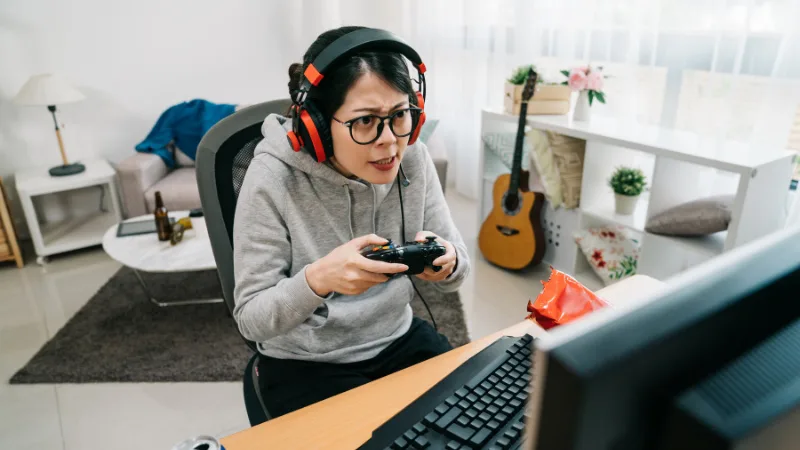
Are Video Games Good for Your Brain? The Science Behind the Benefits
The way games affect our brain is pretty fascinating. Studies exploring are video games good for your brain have revealed impressive connections between gaming and brain development. While some worry about how video games are bad for you, scientists have discovered quite the opposite, and I’m excited to break this down in simple terms.
Video Games That Are Good for Your Brain: Memory and Spatial Learning
When you’re exploring a game world, whether it’s building in Minecraft or finding your way through a complex map, you’re doing more than just playing. Research shows video games improve spatial awareness, which is fancy talk for understanding where things are in relation to each other. Dr. M.A. Greenstein puts it nicely – “we hang our memories on the curtain of space and time.”
Here’s something really cool: gaming actually helps grow new brain tissue, especially in a part of your brain called the hippocampus. Think of the hippocampus as your brain’s memory storage unit. When you’re trying to remember where you parked your car or how to get to your friend’s house, you’re using this same part of your brain that gets stronger through gaming.
How Video Games Affect the Brain: Different Games, Different Benefits
Not all games are created equal when it comes to brain benefits. Scientists have found that different types of games exercise different parts of your brain. Action games like Call of Duty activate an area called the caudate nucleus (think of it as your brain’s autopilot system), which helps with quick reactions and learning procedures.
On the flip side, story-rich games improve long-term memory and learning. These games, with their complex plots and worlds to explore, engage deeper parts of your brain responsible for learning and remembering experiences. It’s like giving your brain a full workout, but instead of lifting weights, you’re solving puzzles and following stories.
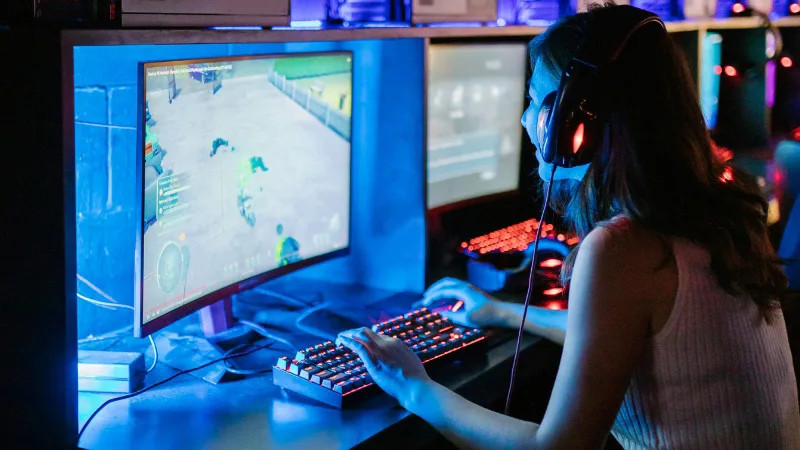
Video Games Are Good for You: Learning Through Play
Modern games are like sophisticated learning machines, packed with tools that teach us in ways traditional education sometimes struggles to match. When people ask why are video games good for you, educational research provides compelling answers. Let’s see what science tells us about this.
Are Video Games Good for Learning? A Natural Learning Environment
When you’re deep into a game, you probably don’t realize you’re learning – and that’s exactly what makes it so effective. Video games create engaging learning environments where mistakes aren’t scary, they’re just part of the process. Kris Alexander’s research shows that games blend together different ways of learning – through seeing, hearing, and doing – which helps information stick better in our brains.
The best part? Gaming provides instant feedback on your progress, something that’s often missing in traditional learning. Think about it: when you’re playing, you always know exactly how well you’re doing and what you need to improve. It’s like having a personal tutor who’s available 24/7.
Video Games Improve Professional Skills in Unexpected Ways
Here’s a surprising fact: video games improve professional skills in unexpected ways. Studies show that surgeons who play games have better hand-eye coordination in the operating room. That’s right – all those hours of gaming might actually be making someone a better doctor!
Language learning through games is another huge benefit. Gaming communities help improve language skills naturally – about 70% of players report their English got better just by playing games and chatting with other players. When you’re focused on winning or completing a mission, you’re learning without even trying, and that’s often the best way to learn.
If you’re inspired by video games and want to create them yourself, learning 3D modeling is an excellent place to start. Check out my comprehensive guide on how to learn 3D modeling, which walks you through choosing the right software, different modeling approaches, and building an effective learning strategy. Many successful game developers started their journey by being passionate gamers before transitioning into content creation.
How To Learn 3D Modeling: Best Guide For Beginners
Discover how to learn 3D with expert tips from AAA game developer. Learn about the best 3D modeling software, resources and learning strategies.
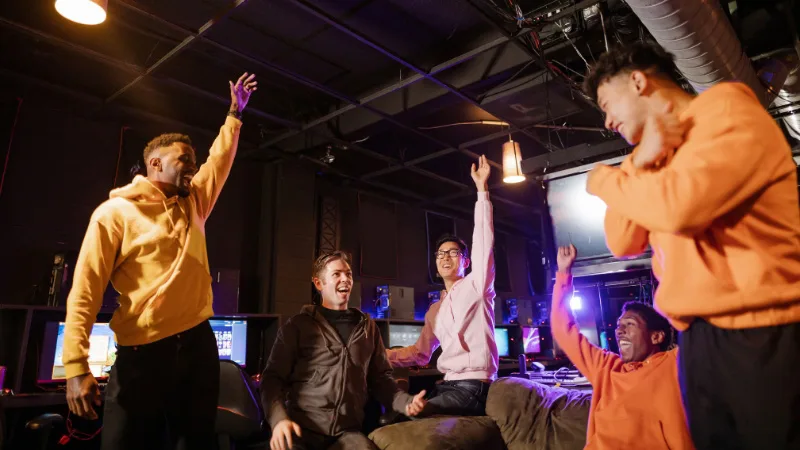
Video Games and Mental Health: Social and Emotional Benefits
Think video games are isolating? When considering why video games are bad, many people worry about social isolation. But research tells a very different story – video games good for you extends into rich social connections and emotional growth.
Why Video Games Are Good for Social Skills: Building Real Connections
Remember the old stereotype of the lonely gamer? Well, science says that’s way off. Studies show that gaming communities create meaningful social bonds, often just as strong as real-life friendships. According to Espen Sjøberg’s research, when we play together online, we’re not just playing – we’re building real relationships.
Here’s an interesting finding: multiplayer games improve social skills in unique ways. You learn to work in teams, communicate clearly, and even lead groups. Think about coordinating with 40 other players to complete a tough raid in an online game – that’s some serious teamwork!
Are Video Games Good for Mental Health? Benefits for Well-being
When investigating are video games good for you, the numbers don’t lie: people who play about 10 hours of games every two weeks show improved well-being. While some worry about video games bad for kids, research shows that gaming can actually boost mental health – but there’s a catch. This only works when you’re playing because you want to, not because you feel pressured to.
Gaming also helps with something scientists call emotional resilience – basically, getting better at handling ups and downs. When you’re playing, you’re constantly facing challenges, learning from failures, and celebrating victories. These experiences help build confidence and emotional coping skills that carry over into real life.
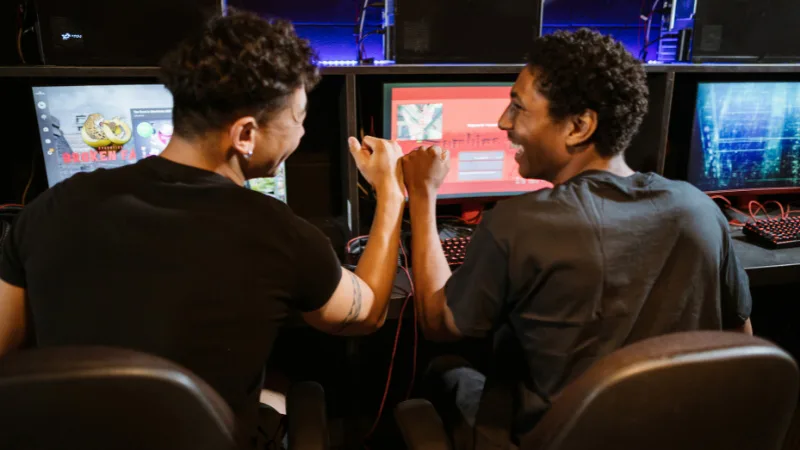
Are Video Games Good or Bad for You? Finding the Right Balance
For those wondering are video games good or bad, the answer lies in balance. While popular video games can offer amazing benefits, success lies in how we approach gaming. Let’s look at how to make the most of it while keeping it healthy and productive.
Video Games That Are Good for You: Quality Over Quantity
Here’s something interesting from the research: it’s not about how much you play, but how you play. Positive gaming experiences happen when you’re in control of your gaming time and choosing games that actually interest you. According to the studies, gaming stops being beneficial when it feels like an obligation rather than a choice.
The sweet spot seems to be around 10 hours of gaming every two weeks. That’s enough to get the brain-boosting and social benefits without letting it take over your life. Plus, research shows that mixing different types of games gives you the most benefits – think of it like a balanced diet for your brain.
How to Make Video Games Work for You
Want to get the most out of your gaming time? Start by picking games that match your goals. If you want to improve your English, join an international gaming community. Looking to boost problem-solving skills? Try strategy games or puzzlers.
The key is being intentional about your gaming. Setting healthy gaming boundaries isn’t about strict rules – it’s about making sure gaming enhances your life rather than dominates it. And here’s a pro tip: shared gaming experiences with friends or family often provide the best benefits, combining entertainment with social connection.
For parents concerned about gaming’s impact on their children, it’s important to understand both the benefits and potential challenges. My guide to parenting in the digital world offers practical advice on managing screen time, creating healthy digital boundaries, and using gaming as a tool for family bonding and learning. With proper guidance, video games can become a positive force in your child’s development.
Parenting in The Digital World: Raising Super Kids
Discover essential strategies for parenting in the digital world. Learn practical tips for managing screen time, online safety, and digital education.
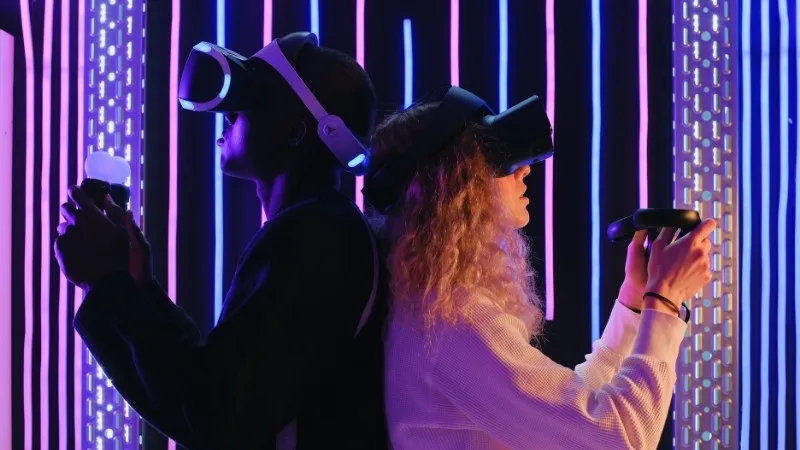
What Are Video Games Becoming? The Future of Gaming
The gaming industry is evolving faster than any other entertainment medium, and its impact on society is growing in fascinating ways. Let’s explore what this means for our future.
Video Games: Beyond Entertainment
The line between gaming and real life is getting thinner. According to Herman Narula’s research, gaming is becoming a platform for social change and real-world problem solving. We’re seeing games being used for everything from environmental conservation to job training.
Gaming is also creating entirely new career paths. The gaming industry is creating new job opportunities faster than most other sectors. It’s not just about making games anymore – there are people earning real incomes through game streaming, virtual item trading, and even teaching others how to play.
For those inspired by gaming’s evolution and interested in joining the gamedev industry, there are numerous exciting career paths available. My comprehensive guide to game artist career paths explores over 20 different specializations in game art, from character design to technical art roles. Many successful game artists started as passionate players who discovered how gaming skills like spatial awareness, quick decision-making, and creative problem-solving transfer well into game development careers.
Game Artist Career Paths: Your Guide to Success
Explore game artist career paths, a variety of specializations, and tips to get a job in game development.
How Video Games Are Changing the World: Future Impact
For those asking what are video games becoming in our society, here’s another mind-blowing fact: they’re revolutionizing traditional industries. Even those concerned about violent video games might be surprised to learn that doctors are using game-like simulations for training, architects are designing buildings in virtual spaces, and teachers are using game mechanics to make learning more engaging.
The future looks even more promising. With virtual and augmented reality becoming mainstream, gaming principles are starting to influence how we work, learn, and connect with each other. Research suggests that these immersive technologies, combined with gaming elements, could revolutionize everything from remote work to education.
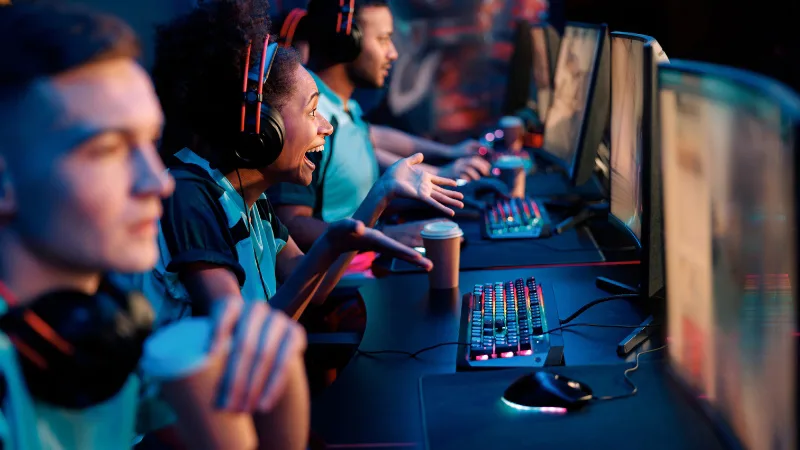
Why Are Video Games Good? Conclusion
After looking at all the research and evidence about why are video games good, one thing is clear: gaming has evolved far beyond simple entertainment. Whether you’re interested in best video games for learning or entertainment, the benefits are backed by science.
Video Games and Personal Growth: Making Gaming Matter
Let’s put it all together: video games aren’t just entertainment anymore. When used thoughtfully, they’re powerful tools for learning, growing, and connecting. Research-backed gaming benefits show improvements in everything from brain function to social skills, proving that those hours of gaming can be far from wasted time.
Think about it – in what other activity can you improve your brain power, learn new skills, make friends from around the world, and have fun all at the same time? Gaming as a learning tool is becoming more recognized and accepted, changing how we think about education and personal development.
Video Games and the Future: Moving Forward
The future of gaming looks bright, but it’s up to us to use it wisely. Smart gaming habits can lead to real benefits in our lives, whether we’re kids learning problem-solving skills or adults keeping our minds sharp. The key is being intentional about how we game and understanding that like any powerful tool, it’s all about how we use it.
Remember, next time someone says gaming is a waste of time, you can tell them about the science that says otherwise. After all, gaming’s positive impact isn’t just about having fun – it’s about growing, learning, and preparing for a future where these skills matter more than ever.
Is Gaming Good or Bad? Frequently Asked Questions
Are video games actually good for your brain?
Yes! Research shows that video games improve cognitive functions in several ways. They enhance spatial awareness, memory formation, and decision-making skills. Different types of games exercise different parts of your brain – action games improve quick reactions, while story-based games boost long-term memory and learning capabilities.
How much gaming time is considered healthy?
Studies indicate that optimal gaming benefits come from playing about 10 hours every two weeks. However, it’s not just about the quantity – it’s about quality. The key is playing games you genuinely enjoy and maintaining a healthy balance with other activities.
Can video games really help with learning?
Absolutely! Gaming enhances educational development in multiple ways. 70% of players report improved English language skills through gaming, and games provide immediate feedback that helps with learning. They create an environment where mistakes are part of the learning process, not something to fear.
Do video games make people more violent?
No, research doesn’t support this common misconception. Scientific studies on gaming and behavior show no direct link between playing video games and increased violent behavior. What matters more are factors like personality traits, family environment, and overall stress levels.
How do video games affect social skills?
Contrary to popular belief, gaming improves social interaction skills. Modern multiplayer games teach teamwork, communication, and leadership. Many players form meaningful friendships through gaming communities that are just as strong as real-life connections.
At what age is it appropriate to start gaming?
This depends on the individual child and the type of games. Age-appropriate gaming content should match the child’s development level. The key is parental involvement – choosing suitable games and setting healthy boundaries for gaming time.
Can gaming help with professional development?
Yes! Gaming develops professional skills in surprising ways. For example, surgeons who play games show better hand-eye coordination in the operating room. Gaming also builds valuable skills like problem-solving, strategic thinking, and team collaboration.
Why do I sometimes feel like I’m not improving at games?
Like any skill, gaming has learning curves. Gaming skill development depends on various factors including practice time, the type of game, and how you approach learning. Focus on enjoying the process rather than just the results, and try different genres to find what suits you best.
Are mobile games as beneficial as console or PC games?
The benefits depend more on the type of game than the platform. Gaming benefits across platforms vary based on the game’s complexity and engagement level. Mobile games can be just as beneficial if they provide meaningful challenges and engagement.
How can I make sure gaming remains a positive activity?
Focus on healthy gaming habits: choose games you genuinely enjoy, set reasonable time limits, take regular breaks, and balance gaming with other activities. Use gaming intentionally – whether for learning, socializing, or simply relaxing – rather than as a default time-filler.
Resources
Want to dive deeper into the science behind gaming benefits? Here are some trusted sources and additional materials to explore.
Research and Studies
- TED Talk: How Video Games Can Level Up the Way You Learn by Kris Alexander
- TED Talk: Gaming Can Be a Force for Good by Noah Raford
- TED Talk: 7 Ways Video Games Engage the Brain by Tom Chatfield
- TED Talk: The Transformative Power of Video Games by Herman Narula
- TEDx Talk: Why Gaming Can Be Good for You by Espen Sjøberg
- TEDx Talk: Why Video Games are Good for Your Brain by Dr. M.A. Greenstein
- McMaster University studies on gaming benefits
Organizations and Communities
- The Games for Change Organization – Non-profit promoting games for social impact
- International Game Developers Association (IGDA) – Global organization supporting game developers
Unlock More Insights With The Lagging Dad
Whether you’re a parent looking to understand gaming better or a gamer wanting to maximize the benefits of your hobby, there’s always more to discover. Join our growing community of mindful gamers! Subscribe for weekly insights on gaming, conscious parenting, and behind-the-scenes gamedev perspectives.
Let’s connect on social media!
Want more insights like this? Subscribe to my newsletter for weekly updates!








